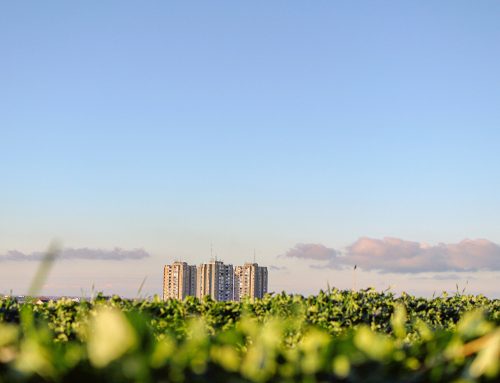Energy-Efficient Buildings for Healthy Lives and Sustainable Environment
The city of Samarinda is on a mission to create a safe, healthy and sustainable environment for its residents. And it is facing a challenge from rising Greenhouse Gas (GHG) emissions.
 Samarinda is of regional importance and representative of the building and growth characteristics of the major cities in Indonesia. It is also near the new capital city Nusantara. Typical of a city that is developing fast to meet the aspirations of its people, there is rapid growth of demand in housing and electricity-intensive appliances like AC.
Samarinda is of regional importance and representative of the building and growth characteristics of the major cities in Indonesia. It is also near the new capital city Nusantara. Typical of a city that is developing fast to meet the aspirations of its people, there is rapid growth of demand in housing and electricity-intensive appliances like AC.
The rising energy use in Samarinda Building Sector is leading to an increase in GHG emissions. According to GBPN Sub National Strategic Lead Yeni Indra, this is a double-whammy.
“Unsustainable building practices and GHG emissions affect the environment and health of the people. It also adversely impacts the achievement of Nationally Determined Contribution (NDC) targets for reducing carbon emissions.” Ms Indra said.
“In a Baseline assessment of energy demand in Samarinda, it was found the rise in electricity demand is expected to increase by +7% per annum. With the rise in housing units, there will also be a rise in water demand. Without mitigation actions, Samarinda, and Indonesia will not be able to reach the NDC targets for a low carbon future for Indonesia.”
“Without mitigation actions, Samarinda, and Indonesia will not be able to reach the NDC targets for a low carbon future for Indonesia.”
Strategy Towards An Eco-friendly Samarinda
Starting in November 2020, GBPN worked closely with the local government as well as Universitas 17 Agustus 1945 (UNTAG) University. 
Ms Indra said that GBPN’s work in Samarinda was a great example of how strong coalitions with local experts helped tailor impactful policy solutions that will work in the region.
“Collaborating with local expert partners is essential. GBPN worked in strong collaboration with UNTAG University, which provided us with local data and field information regarding energy saving and population,” she said.
“UNTAG helped us assess how successful our strategies and data would be on the ground. This in turn helps us ensure our policies and plans complement the existing national policies and have a good follow-through to implementation.”
UNTAG University’s Head of Architecture Mr Ir. Prasetyo said the partnership with GBPN was central to the success of the project, as each partner brought different skills to the table.
“This people-centred collaboration is a strategic enabler,” he said.
“It allows us to share knowledge and experience between international and local experts while implementing low-carbon policy.”
A Policy Win for Samarinda and its People
The GBPN-UNTAG team supported Samarinda in the development of a policy for energy efficiency. In 2021, the policy recommendations became part of the Mayoral Decree 55/2021. The decree is a landmark policy win; it is the first set of green building regulations to be adopted outside of Java.
The Mayor of Samarinda, Dr H. Andi Harun, said the GBPN project was a key step in developing implementable energy-efficient building policies.
“In accordance with the Vision and Mission of the City of Samarinda to create a city with a safe, comfortable, harmonious and sustainable environment, we feel the need to implement policies for energy and water savings. This Mayoral Decree is proof that the City of Samarinda takes the role and responsibility so that Indonesia can achieve the NDC target,” Dr Harun said.
With the implementation of the Mayoral Decree, Samarinda is expected to save as much as 20% energy usage over a period of 6 months.
GBPN CEO Dr Peter Graham said, “What’s particularly exciting about this project is that the work we’ve done here can be scaled and replicated elsewhere. Samarinda was a strategic choice of location because of its proximity to Nusantara, meaning the learnings from this project can be applied in the new capital city and in other locations in Indonesia as well.”
Effective implementation can deliver real changes
The work does not stop here. For the regulations to make a real impact on the ground, they need to be implemented effectively.

GBPN will now support the implementation of the decree through local stakeholder engagement networks to steward alignment with Indonesia’s Long-Term Strategy for Low Carbon and Climate Resilience 2050. GBPN is working closely with the city government to develop a technical guideline for implementing the Mayoral Decree based on a practical understanding of the local conditions and challenges.
To strengthen capacity building with the Samarinda Government, GBPN also supported multiple special training and education programs specifically to understand the local building culture, policies, and practices.
“Our experience in Samarinda highlights the genuine capacity of policy work to deliver real changes – to the way developers build, to providing transferable assets that could be used in other regions and to better and healthier communities,” Dr Graham said.
| Project Name: Municipal Green Building Standards in Samarinda | |
|---|---|
| Goal: | To develop implementable energy-efficient building policies in Samarinda to create a city with a safe, comfortable, harmonious and sustainable environment. |
| Funded by: |  |
| Duration: | Jan 2021 – Dec 2021 (12 months) |
| Location: | Samarinda, Indonesia |
| Level of Government: | Local |
| Reports and Links: |
|
| Government Partner: | City of Samarinda |
| Research Partner/s: |
|
| Implementation Partner/s: | None |
| Advocacy Allies: | None |
| GBPN Expert/s: | Philip Harrington |
| Related Project/s: | None |





